Happy Mondays: Wales saved my life, says Bez
- Published
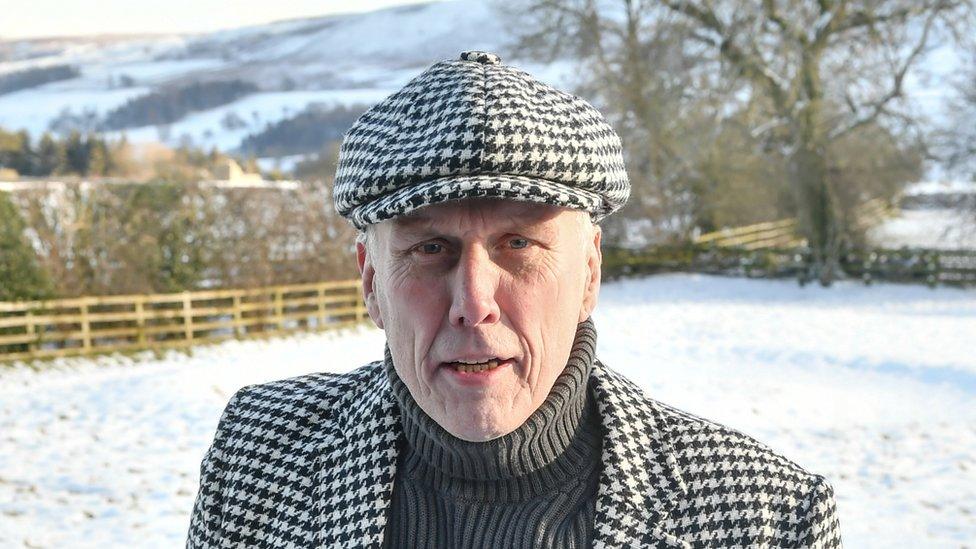
Bez has been embracing the Welsh countryside and culture
"Wales probably saved my life."
Mark "Bez" Berry is best known as the dancer and maraca-toting face of '80s and '90s "Madchester" band Happy Mondays.
His drug and alcohol-fuelled life saw him rise to the highs of Glastonbury and the lows of Strangeways.
Yet after meeting what he described as "some aristocratic Welsh hippy sorts", he turned his life around on a commune near Swansea and lives with his wife on the Welsh borders in Herefordshire.
He said: "In the early 2000s it was all starting to get a little bit too much for me. I was hitting 40, and knew I'd be lucky to see 50 the way I was going.
"I've also always been really keen on saving the planet and that, so when I met these guys at Glastonbury who showed me a sustainable way of managing myself as well as the land, it all started to make sense to me."
After seeing off near bankruptcy following his time in Happy Mondays, Bez went "off grid" to rediscover himself.
He spent several years living on Cwm Yr Heol Farm in Pontardawe, Neath Port Talbot, learning to grow organic vegetables, tend livestock, and most importantly for him, keep bees.
"The top bloke there was a guy called Godfrey, he reminded me of my grandfather, and taught me everything I know today about living off the land," he said, speaking to BBC Wales shortly after the publication of his autobiography.
"I've taken it all in, but the most exciting thing for me was learning about bees; they said so much to me."
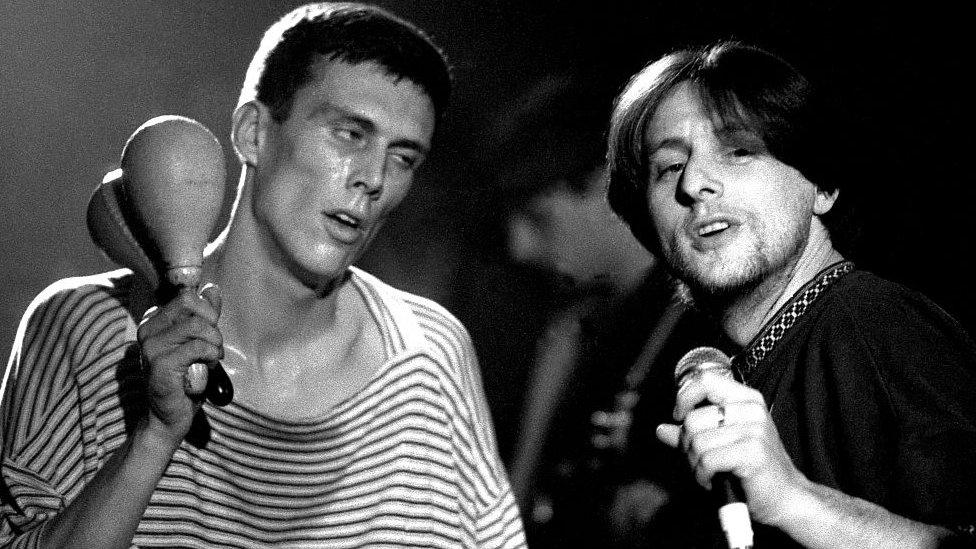
Bez and Happy Mondays singer Shaun Ryder performing in 1989
Bez saw something of his own stage act in his bees when they found nectar and alerted the rest of the hive.
He said: "They'd shake about and wiggle their bums just like I did, it made me warm to them straight away.
"Then I learnt more and more about their lifestyles and habitats and I was hooked, I knew that's what I wanted to do with my life."
Bez bought his first hive for £50 15 years ago, and despite some early accidents - including leaving down the fly of his beekeeping suit - he's still smitten, with another seven hives to his name.
"I won't lie to you, it's mostly selfish. I love honey, in my tea, on my cereal, in booze, and just on its own by the spoonful. I tell you it's better for your virility than Viagra," he said.
Though close behind the honey is the tranquillity.
He said: "I need the peace these days. What Godfrey taught me is that you need to manage yourself the same way as you manage your land.
"In Manchester I was constantly taking out and putting nothing back in to myself, but here I can still have the mad parties, but I'm exercising, eating the right stuff, and making myself strong for the occasional bender.
"It's like with the bees, you can't be too greedy, take some for yourself for sure, but always sort it, that you've left enough to keep the colony going over winter."
Once Bez decided it was time to leave Godfrey's farm and strike out for himself, he knew that he wanted to remain in, or close to Wales.
"I can't believe the value you get around here, not just pounds-per-acre, but pounds-per-beauty," he said.
Now Bez tends his smallholding - from which he said he can throw a stone into Wales from his back doorstep - with his dogs and new wife Firouzeh Razavi, who he married in September.
"I'm quite the country gent these days, I'm friends with all my neighbours, and I know every pub in a 20-mile radius.", he said.
His wife brought Bez still closer to Wales, when she introduced him to brass band music for the first time.
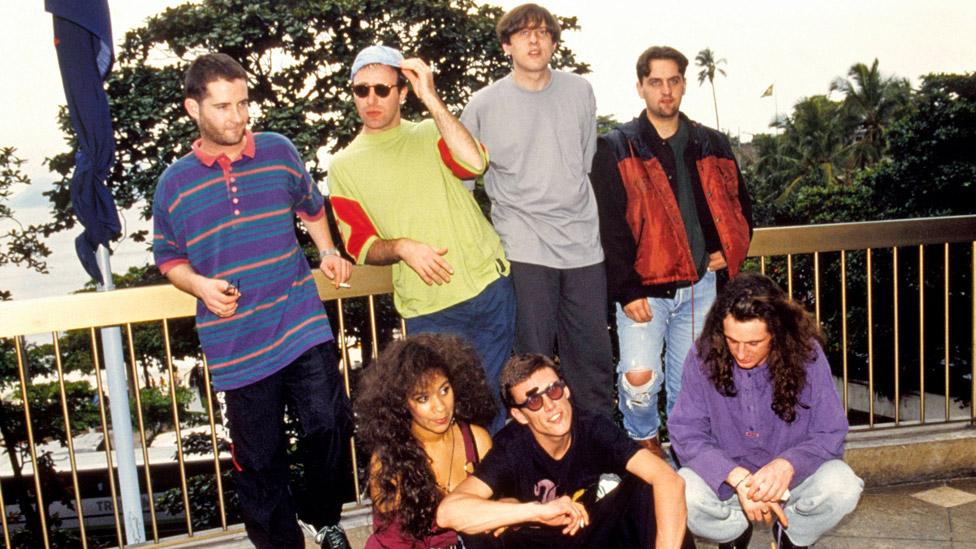
The Happy Mondays in 1991, with Bez pictured on the bottom row in the middle
He said he had never heard colliery brass before, but it had changed his life.
"Every morning I jump out of bed, tear back the curtains and ask what else new Wales has got to show me."
As well as Welsh music, Bez has also been embracing Welsh history.
"That Owain Glyndwr dude he's right up my street, fighting for his people and - like - trying to make a free home for themselves.
"He's a proper hero, I can't understand why you lot don't make more of him?
"Close to us there's an oak tree where he hid from the English. I go there just to rest and think sometimes. You don't need drugs when you've got that, you can just feel the history buzzing through you."
Related topics
- Published9 October 2022
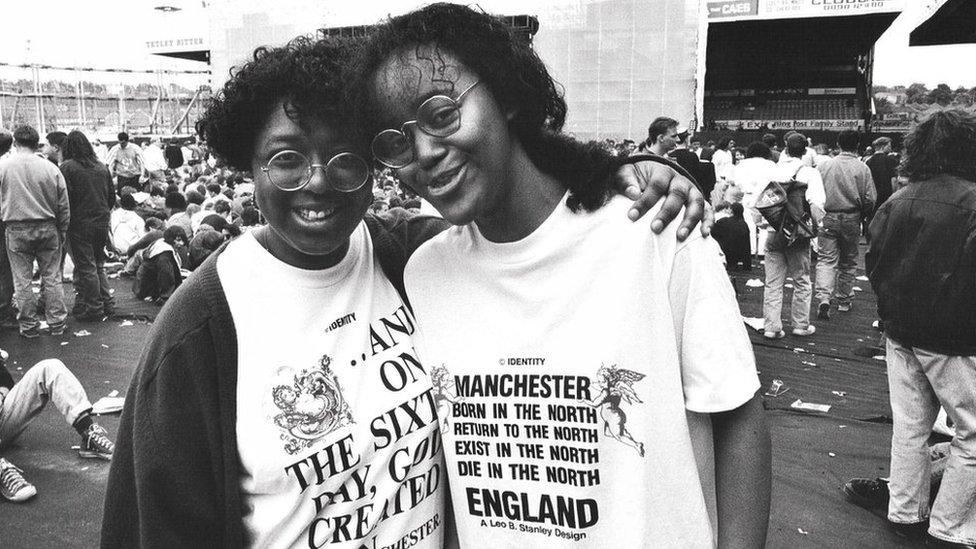
- Published21 March 2022
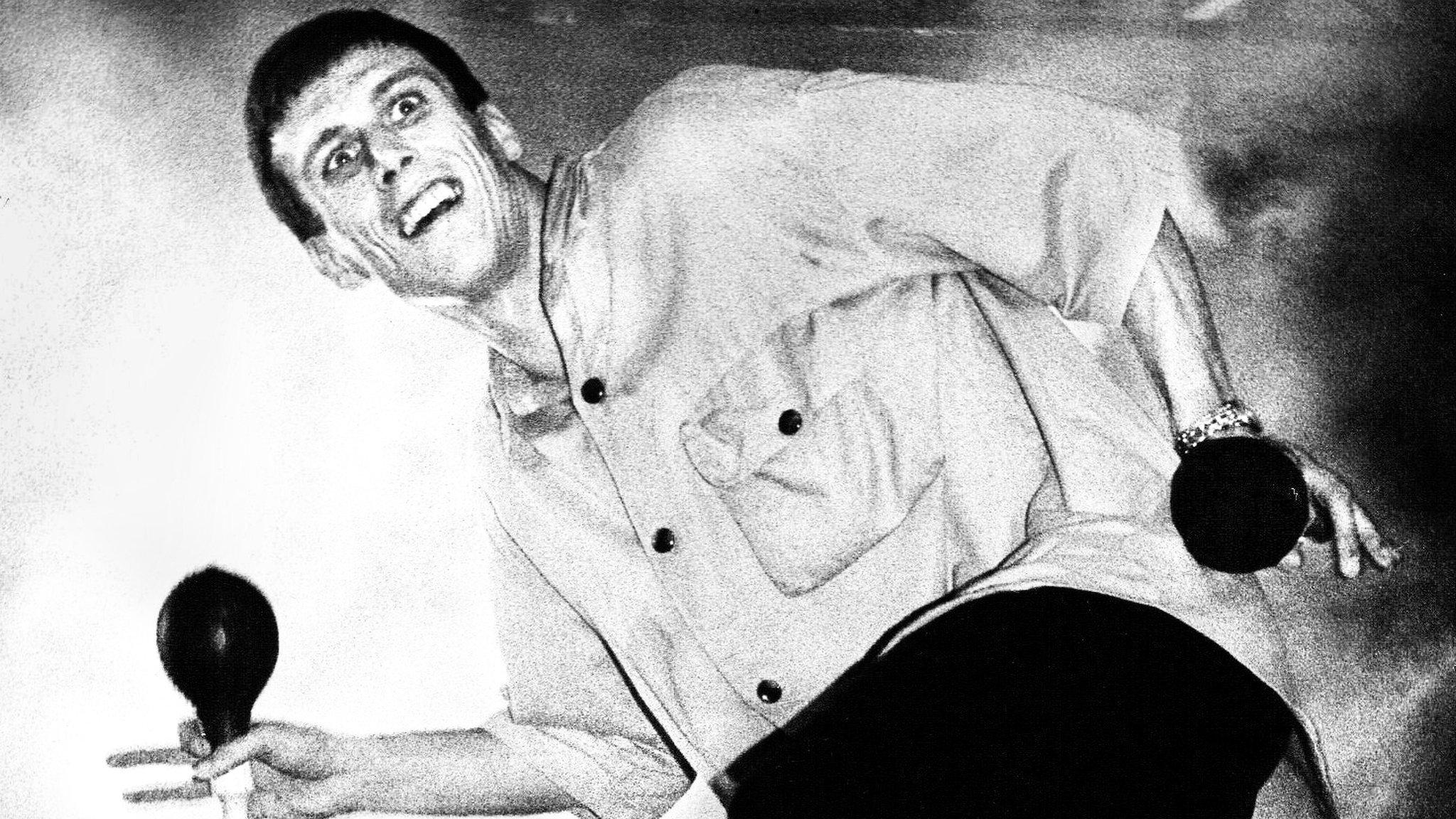
- Published26 September 2022
